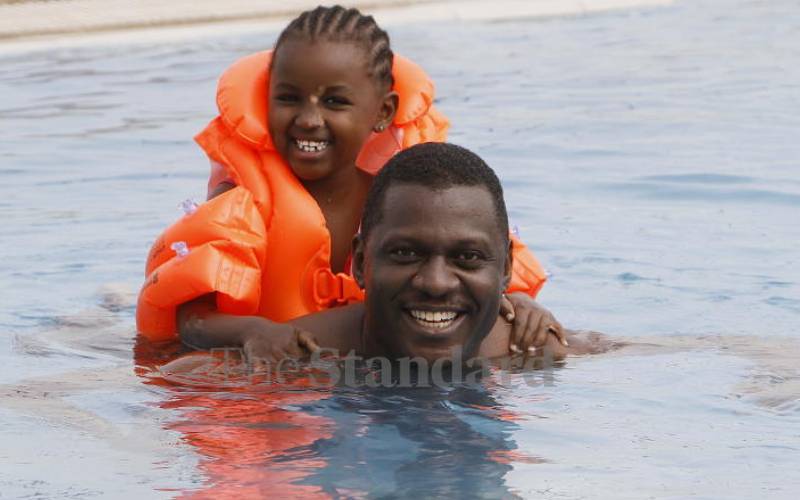×
The Standard e-Paper
Smart Minds Choose Us

Tony Kisaka and his daughter Alayna Kisaka at a swimming pool in Westpoint Suites, Nairobi. [Jenipher Wachie, Standard]
It is Father’s Day today. It is a day that is often given less attention than Mother’s Day - at least in contemporary African society.